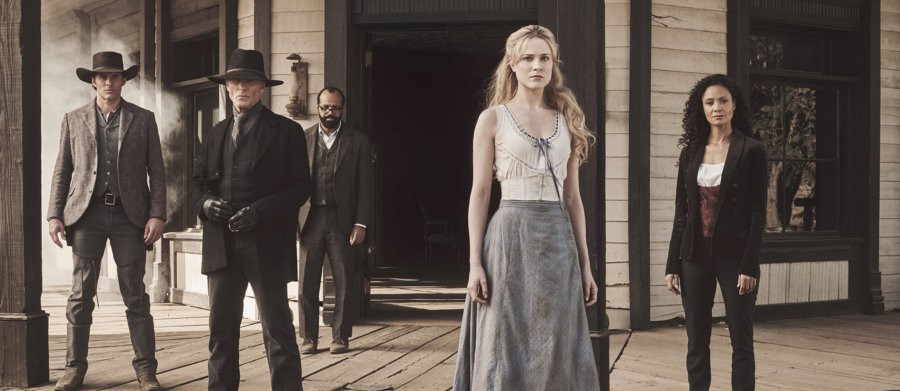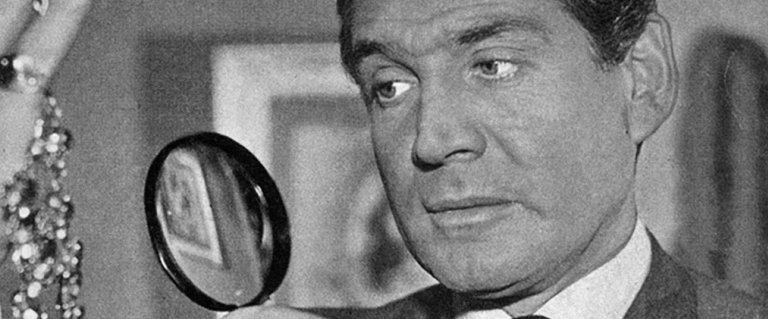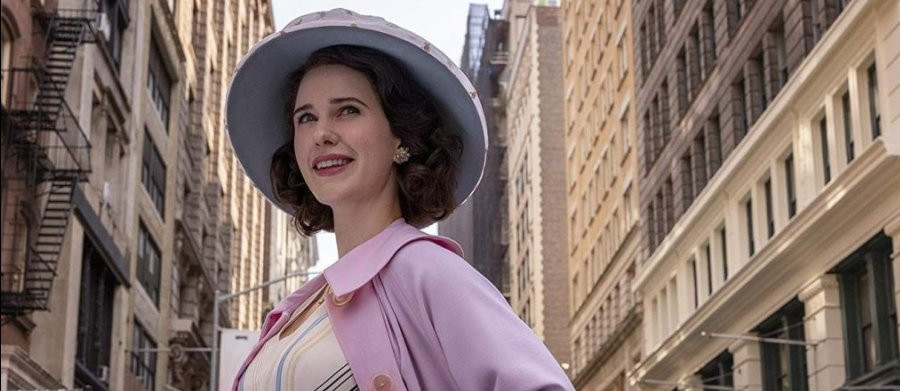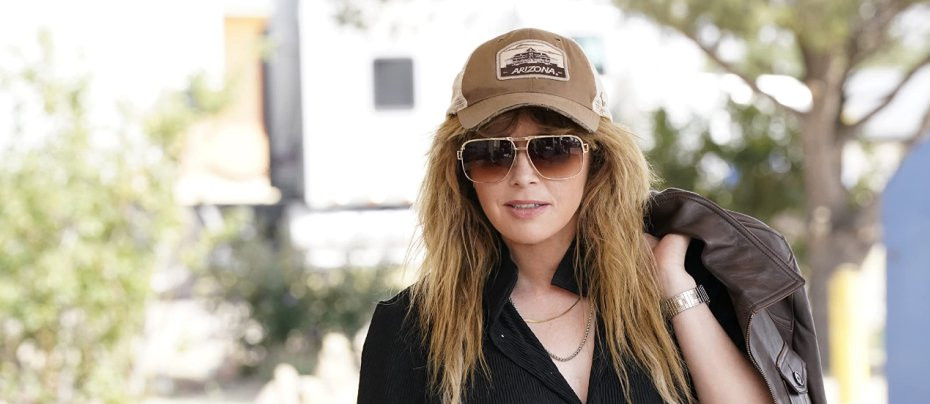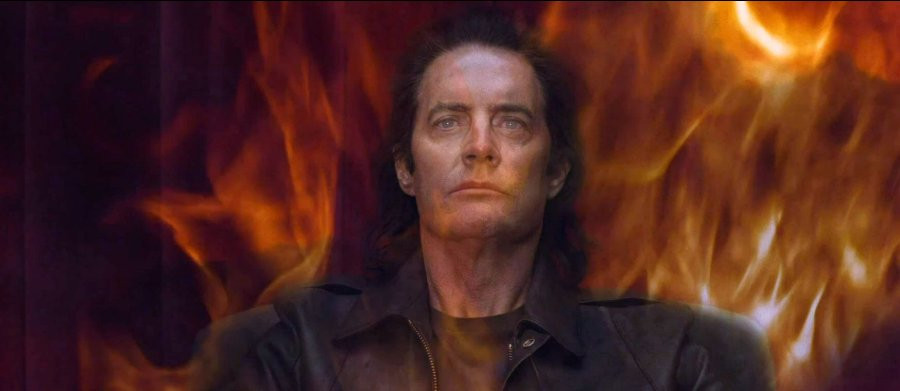
Twin Peaks: The Return
2017 - United StatesTwin Peaks: The Return review by J.D. Collins
No one expected it. But it happened again. The most groundbreaking, innovative, and baffling television event of the 2010s was the revival of a series that, nearly 30 years earlier, made a similar impact and single-handedly changed the medium.
Twin Peaks will always be an enigma in television history. It's hard to imagine an era before the 21st century that would allow a controversial auteur like David Lynch to produce a series for a medium that, especially in 1990, was very traditional and conservative in content. Along with established television writer Mark Frost, they wrote a surreal murder mystery that hooked millions of viewers who were dying to know; Who Killed Laura Palmer? The investigation led by FBI Agent Dale Cooper saw him come face to face with both the town's strange inhabitants and its dark undercurrent. For the first time, television had an ambitious, cinematic look with complex characters and stories that explored daring and mature themes. It's become commonplace to describe the series as influential and how it opened the door for other shows like The X-Files, The Sopranosand Lost, to name but a few.

It developed a massive cult following of fans known as Peakies and, in the end, they were the only viewers who stuck around. One year after its premiere, a drop in ratings and behind the scenes politics led to the show's cancellation. Anyone who stuck with the series couldn't imagine that the final episode would see Laura Palmer in the mysterious entity, known as the Black Lodge, sitting opposite the protagonist Agent Cooper and promising to see him again in 25 years. Was it literal? Did Lynch and Frost have an idea? Or was Twin Peaks all about empty metaphors? It also ended on a frustrating cliffhanger as Cooper is possessed by BOB, the evil demon who had previously possessed Laura Palmer's father and, through him, killed her. While even the most dedicated Peakie couldn't forgive such a game changing finale, it seemed as though a resolution was just around the corner.
After ending in 1991, David Lynch returned to the world of Twin Peaks with the feature film; Twin Peaks: Fire Walk with Me. A prequel showing the last week of Laura Palmer's life, the film was originally rejected by fans who felt that it was simply a rehash of a story they already knew and, seemingly, added nothing new to the show’s dangling threads. The film is a totally different beast to the series; without the network constraints, Lynch's full vision for Twin Peaks was realised and he created his most harrowing film to date. The more disturbing elements that were only hinted at in the series are shown with a visceral punch and achieves maximum cumulative disturbance. The passage of time has been kind to the film, with reassessments praising its startling visionaries, performances and for acting as both a worthy Twin Peaks movie and a stand-alone horror film in its own right. Little did anyone know that the movie would in fact set up strands and ideas that would be further explored and act as a narrative bridge between the original series and The Return.
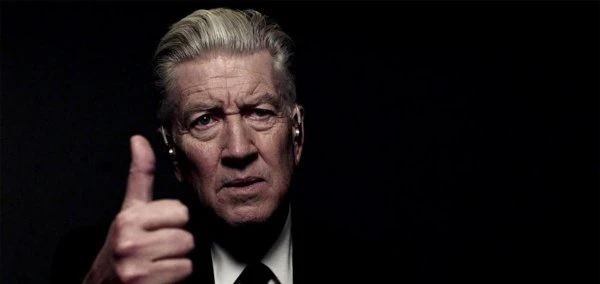
In 2014, Lynch and Frost announced that American cable channel Showtime, would produce a 9-episode revival. The birthplace of Dexter and Homeland, this was finally the time for Lynch and Frost's full vision to be realised. Having faced production troubles, it was two and a half years before the now 18-part series, entitled Twin Peaks: The Return, would finally air. Described as an 18-hour movie written by Lynch and Frost and directed by Lynch, no one could predict what they had in store. There was as much apprehension as well as excitement. The series did lose its way in the second season and in 2016 a revival of The X-Files garnered mixed reviews. It's clear, compared to other TV revivals of the time, Twin Peaks: The Returnwas never an exercise in nostalgia.
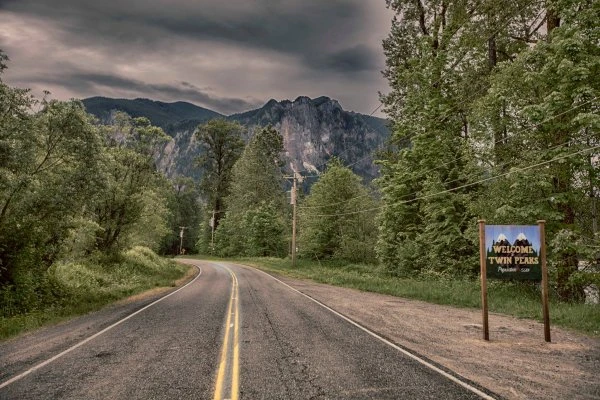
The main storyline is centred around Dale Cooper who, 25 years later, remains in the Black Lodge and is reacquainted by Laura Palmer. He is allowed out, but he has an evil Doppelganger roaming and committing evil acts on earth. When Cooper returns to Earth, his mentality is blurred and unknowingly finds himself assuming the identity of a businessman named Dougie and, for the majority of the series, fans wait for Cooper to awaken to his true identity. Kyle Maclachlan reprises his role as the main Cooper and his various versions. He delivers a powerhouse performance as three decidedly different characters and shows his range by playing a quirky hero, a comic buffoon and pure evil. It's a scandal that he didn't win the Golden Globe!
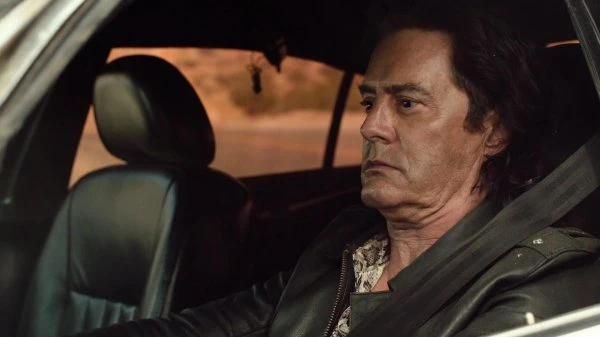
It's difficult to review this series as a whole without getting too tangled and going off on tangents about the various theories surrounding the different strands. ‘The Return’ does expand on the mythology of the original series, albeit subliminally and instead of providing answers, in pure Lynchian style, he lets the audience form their own conclusions. The series is full of puzzles and red herrings that do tie together, but it's not straightforward. For example, in the series, Judy is an entity whose full identity is never fully explained. This led to Who's Judy? becoming a topic of debate for YouTube vloggers and bloggers. This type of television is not for everyone, but it seems as though Lynch and Frost know this world inside out and give those hungry for a debate plenty to talk about.
Therefore, it's best to look at the overall story and moments of this cinematic TV genius. Lynch and Frost's script's follow multiple storylines that go beyond the town Twin Peaks with stories set in Las Vegas, Florida, New York and even Argentina. These stories all tie together, with revelations throughout the series and not just in one big loop at the end. Along with the ongoing storylines, much like the original series, there are short vignettes that initially don't seem to link together or even seem relevant. Often they are short scenes that look at individual characters' lives away from their usual setting; for example Ashley Judd's character is mostly seen at the Great Northern Hotel, but viewers gain insight into her home life with a scene that is well acted and heartbreaking. Many of the vignettes are totally innocuous, like characters having bland conversations at the Roadhouse, or even one infuriating scene showing a man mopping a floor for 2 minutes to the song Green Onions. Upon multiple rewatches, it becomes clearer how these vignettes cleverly link together by further exploring the overarching themes of death, time and evil. Often many of the blander vignettes emphasise the juxtaposition between boring reality and the supernatural undercurrent that's never far away.

As for the iconic characters from the original series, almost the entire cast returns. Fan reaction to the character developments varied. The most controversial decision was the character development for Audrey Horne whose short appearances were strange and yet fed theories as to what happened to her following the original finale. Nevertheless, Sherilyn Fenn remains a scene stealer in these fleeting moments. While Lynch and Frost clearly try not to pander to Peakies with overt fan service, they do reward us by finally finishing Norma and Ed's near 40-year love affair with a happy ending. Shelley's tears reflected Peakies across the world who cheered this couple on. Andy and Lucy are still married and quirky as ever. Whoever thought of Michael Cera to play their son Wally deserves a medal in perfect casting. Lynch returns as Agent Gordon along with Miguel Ferrer, reprising his role as Albert Rosenfield; one of his final performances.
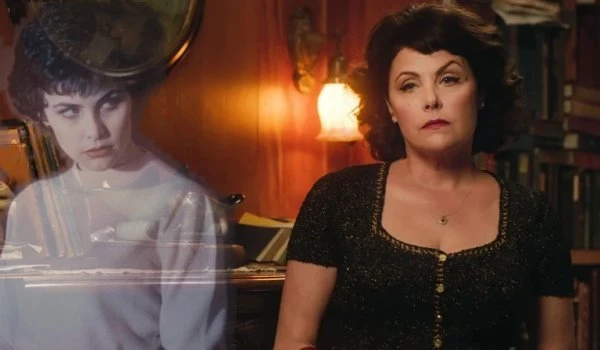
One of the most iconic of the Twin Peaks residence is The Log Lady. Played by Catherine E Coulson, the character spoke in symbolic metaphors in order to help further the storylines while caressing a log and referring to it as if it has thoughts and opinions. During pre-production, Coulson was sadly diagnosed with terminal cancer and as her health declined, Lynch and Frost quickly wrote and filmed her final scenes as The Log Lady. In a case of art imitating life, Coulson's frail appearance and requirement of oxygen through a tube meant that The Log Lady was also dying; this makes her performance more gut wrenching and impactful as a result. The Log Lady's death in Part 15 sadly reflected Coulson's own passing only four days after filming her final scene. It was a sensitive and powerful tribute to a talented actress whose bravery and commitment to perform in her final days will never be forgotten.
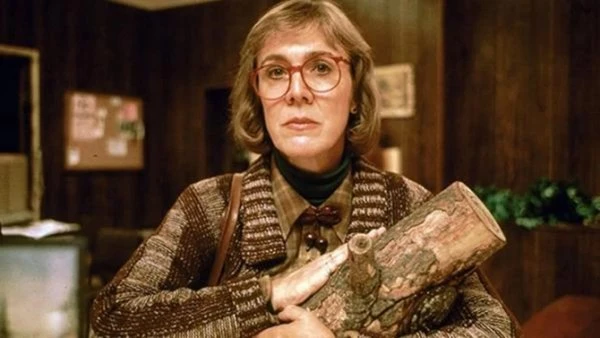
There are also some new faces who join the cast. Amanda Seyfried plays Bobby and Shelley's daughter Becky, whose troubles are a constant worry for the now divorced couple. Mädchen Amick performs this well, especially during the scene where she throws herself onto the car. Richard Horne the birth child of the Evil Cooper and Audrey is a nasty piece of work and the revelation as to the identity of his parents was an exercise in wonderful build up and no sensationalised reveal. One character who was never seen, but regularly mentioned in the original series was Diane who finally appeared and played by regular Lynch team player Laura Dern; her striking appearance and sharp put downs made this near 30 year wait one hundred percent worth it. Naomi Watts plays Dougie's demanding wife Janey-E who is later revealed to be Diane's estranged sister. Chrysta Bell is the most stylish FBI Agent in years playing Agent Tammy Preston who works alongside Gordon and Albert. Sheriff Harry Truman was one of the original series most beloved characters and played by Micheal Ontkean. As Ontkean has since retired from acting, Robert Forster joined the Sheriff’s department as Truman's brother Frank and plays a very different character.
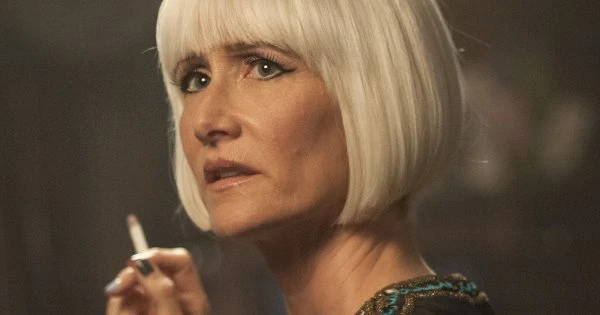
Lynch's direction purposefully goes against the convention and style of the original series. The look of ‘The Return’ is much more distant. It is Twin Peaks, but lacks the familiar style. For example, there's an obvious absence of Angelo Bandalmenti's music which makes the overall tone of certain scenes seem cold. However, the final scenes of each episode include live performances by real Indie artists at the Roadhouse during which the credits roll. I never liked the silly soap opera style of the original series and I am pleased that ‘The Return’ focuses more on the darker elements. The dream sequences and moments of character's entering other realms are even more visceral and daring than before. The most talked about episode out peaked even the most surreal Twin Peaks moments. Part 8 is a 58-minute tour de force, art house black and white spectacle that, in short, depicts the origins of evil. With little dialogue, it has once again provoked a lot of theory and debate as it suggests the idea of Laura Palmer as a mystical figure. It is a captivating watch and boasts moments of effective horror, more disturbing than any horror movie of the last 20 years. Even on cable, nothing this radical has ever been seen on TV before.
Near the end of ‘The Return’, it was hard to believe that a series that was originally about the murder of a school girl had gone so far into other realms and ideas. It was easy to forget where it started. And yet, the final part unconventionally brings it back full circle with an ending that absolutely does not answer any questions but in the world of Twin Peaks, it feels appropriate.
The original Twin Peaks was ahead of its time and while the movie showed what it could be without network censors, not even fans could predict the sheer brilliance and originality of Twin Peaks: The Return. It could have only been made in the modern TV landscape. Not everyone has taken to, or will take to the lack of answers and audience determined conclusions. However, it’s distinctive structure and exploration of complex themes has made its mark as one of the most unique and discussed TV events in years. Bizarrely, it is the most original TV show, since the original series and it has captured the audience's imagination in the same way as it did in 1990.
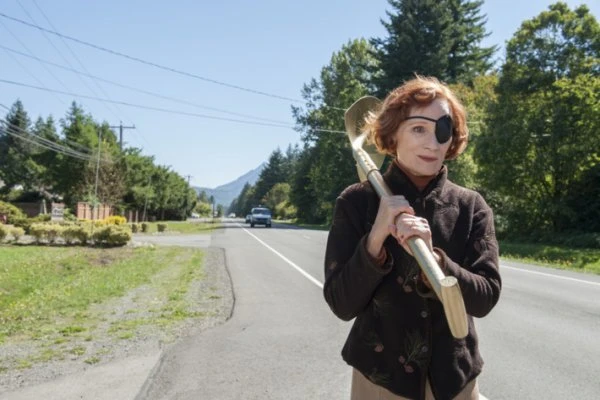
Many were sceptical as to whether, in the modern TV landscape, new Twin Peaks could stand out from the crowd of its successors. But as the revival proved, even in an era of innovative shows like Stranger Things, The Walking Dead and American Horror Story, there has always been, and only ever will be, one Twin Peaks.
J.D. Collins
J.D. (as in John David and not Jack Daniels) is an admin assistant by day and a writer, dog owner and hologram by night.
He wants to clarify that he has not got an unhealthy obsession with The X-Files despite owning dogs called Mulder and Scully and being the author of the Amazon Ebook "Reviving the Truth: A Critical Binge of The X-Files Post 2002."
J.D. can be found on Twitter; @jdcollins95
Seen this show? How do you rate it?
Seen this show? How do you rate it?
Published on March 30th, 2020. Written by J.D. Collins for Television Heaven.




